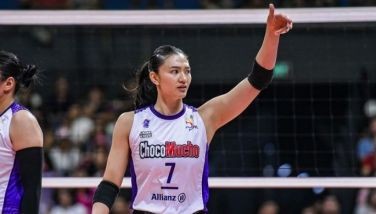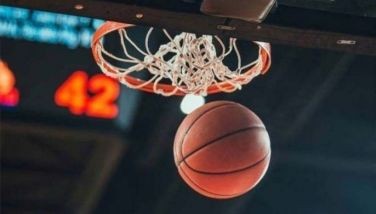To the next President
It’s 2016, and the nation is less than five months removed from electing a new set of national officials. But as we mull over which candidates to vote (and which lesser evils to select, in some cases), let’s throw in our two cents’ worth on their oft-neglected responsibilities to sports. As this column has repeatedly pointed out, sports is more than a luxury or a pastime. A fit, active country is more productive, resilient and resourceful. These are some thoughts for the incoming administration, whoever that may be.
First of all, the various government agencies should set the example for the rest of the Philippines. The counterparts of the Armed Forces, Philippine National Police, Bureau of Fire Protection and other authorities are respected for their fitness in other countries. Military personnel and fire fighters are poster boys for looking good, particularly in the United States. Since the 1980’s, the military has been a source of athletic pride for the Philippines. A fit, well-maintained police and military corps send a message to the citizenry, that they take their job seriously. People will likewise aspire to become soldiers and policemen, or at least have the same discipline and fitness.
The Technical Skills Development Authority (TESDA) trains and certifies millions of workers every year. Almost all of them are hired by corporations in other countries, where requirements include government recognition of the employees to be hired. TESDA, with a budget of roughly P3 billion annually, is a major pillar in keeping the economy going by filling the needs for the bulk of Overseas Filipino Workers (OFWs) constantly. All told, TESDA offers over 300 courses in various fields, from hotel housekeeping to welding to auto mechanic/maintenance, and refreshes them as knowledge and technology change. Corporations gladly provide technical equipment to keep new applicants up to date, or introduce new jobs that are available overseas.
However, despite the wide variety of jobs that TESDA trains workers for, none of them include any sports. TESDA, like other government agencies, relies on experts from the private sector to bring any new technical knowledge and equipment to them for mass training. However, so far, it’s been a chicken and egg situation. There is no infrastructure, and therefore no systematic demand for Filipinos in sports. However, in parts of Southeast Asia, the Middle East and the US, there is a growing market for Filipino coaches and trainers in different sporting disciplines. An underground economy on both the East and West Coasts includes Filipinos who teach ballroom dancing, basketball, tennis and other sports. But they are, as yet, unregulated, and have no uniform training. The next president could create a pipeline for professionally trained Filipinos to gain employment not just in personal capacities, but in institutions like hotels, resorts and gyms overseas.
Next, there are laws on sports and fitness that have to be reviewed for their lack of implementing rules and regulations. For example, in December of 2010, the bill making arnis the national sport and martial art of the country was signed into law. Part of the law requires arnis to be taught in all schools nationwide. However, with no implementing guidelines, the law remains unfollowed. Again, with a proper certification process through appropriate government agencies like TESDA, professional arnis instructors can give a uniform level of training, and raise the standard of the sport. There are certainly other sports laws that can be implemented as they were meant to. And while we’re on the subject, perhaps the next president can fast-track the creation of a Department of Sports, to finally give it the muscle it rightfully deserves. When sports was part of the DECS, problems could be resolved at the Cabinet level. But since sports was devolved, there has been no true patron at the highest level of government.
Decentralization will also be a big factor in boosting the country’s sports, fitness and health regime. There are sports facilities in areas as diverse as Tarlac, Pangasinan, Baguio, Cebu, Iloilo, Bacolod and Lanao del Norte, not to mention the bigger schools in the bigger cities. Partnering with the Philippine Sports Commission would equalize the growth in each region. Competitions like the Palarong Pambansa and the Batang Pinoy would then become a more equal playing field, and not just a market for big schools in Metro Manila to poach their future varsity athletes from. In this way, the transfer of technology will cascade all over the country, and a proper exchange of knowledge and experience can be established. It won’t be a one-way street anymore. As a footnote, the model of the Cebu City Sports Commission would be a good template to follow to institutionalize support for sports at the local government level.
What about the elderly and retired from the sports community? Former athletes, coaches and trainers may be deployed to communities all over the country to train the youth. In countries like the United States, the elderly and abandoned youth are paired together, and each gives the other an emotional lift as both experience greater self-esteem and feelings of being productive.
Lastly, the media component of government sports agencies may be upgraded to catch up with the times. Media bureaus are still largely confined to the print media. But in sports, it is video that spurs the emotions and inspires the general public. A broadcast or online news bureau for both the Games and Amusements Board (GAB) and PSC would be responsible for disseminating information on the training, preparation and competition results of our national athletes. Since broadcast news agencies don’t really show sports news on a daily basis, a syndicated service sending footage and stories would guarantee exposure of our athletes to tens of millions of Filipinos everywhere, which in turn would help them get more sponsors and funding.
It seems a lot to do, but if we had a Chief Executive who had the goal to make the Philippines a truly world-class sporting nation, it would just be a matter of political will.
Here’s hoping.
- Latest
- Trending




























